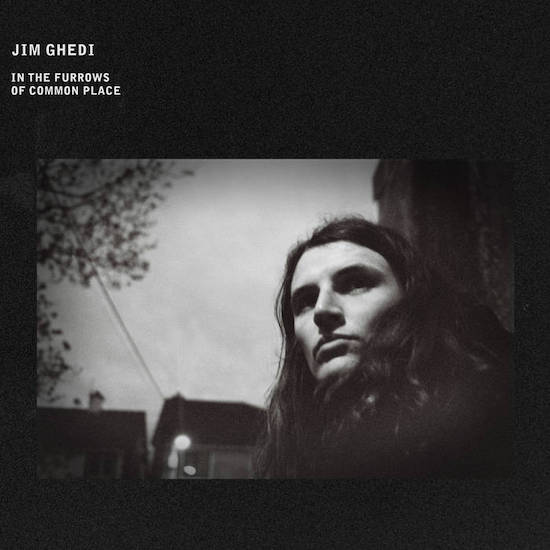In the Furrows of the Commonplace is Jim Ghedi’s third album since 2015, and here we find him in fine form. Ghedi is a man unafraid of the signifiers of folk and his Yorkshire voice wraps ably around his lyricism in a way that displaces him historically. Indeed, without the gorgeously contemporary production, which is unobtrusive and measured, you’d be hard pushed to know exactly when he belongs. The effect is quite exhilarating, and sadly kind of rare in the current crop of folk artists.
Arrangements that take on fiddle, harmonium, and – gloriously – flugelhorn are rich and almost overflowing with timbral complexity. Just take a listen to the drone-driven setting of the John Clare poem ‘Lamentations of Round Oak Waters’ to get a sense of my meaning. It’s a testament to his singing that he can in any way compete with this ocean of noise. I am fizzing with envy.
Often this album creeps toward something like Alasdair Roberts’s phenomenal Too Long in this Condition though perhaps at times it doesn’t quite find the brutal clarity and violence of Roberts. This should not be taken as a negative though. Ghedi’s restraint is useful when set against the denser arrangements, and in more spartan moments like the opening of ‘Stolen Ground’ it allows his voice to fill the ears with all its clenched-jawed urgency.
And the clenching of the jaw is important here. This is an angry sort of record where themes of wealth, environment and socio-economic injustice punish their way through his pastoral world. There is a sort of mysticism here too, that seems to borrow from the likes of Robert MacFarlane whose subtle appropriation of Susan Cooper’s mythology into his own thinking has allowed him to explore lost relationships to land and the cultural losses within.
The comparison works here, I think. Ghedi’s album evokes moorland, fell, and gale force winds with deeply cinematic effect. The two parts of ‘Beneath the Willow’ gallop toward a funereal conclusion that could only be imagined within a harsh and unforgiving landscape.
Ghedi does trad well too. ‘Ah Cud Hew’ and ‘Son David’ both fall seamlessly in amongst his own compositions with barely a gear shift. This is accomplished stuff indeed. It’s smart, angry, and visceral folksong, and perhaps exactly what we need just now as the trappings of our hypermodern culture fail us and the world starts to burn. A record that shows us our errors and pulls us back to the land makes for a fruitful medicine.


